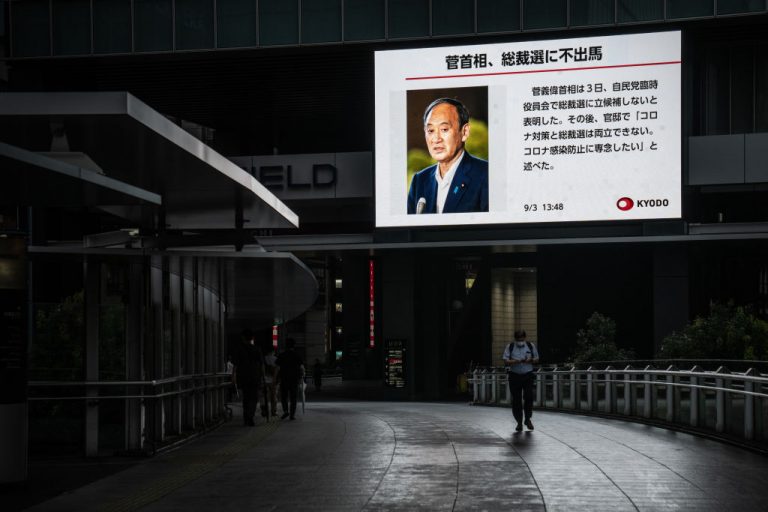Japanese Prime Minister, Yoshihide Suga announced on Friday, Aug. 3 that he will not be running in his party’s leadership race beginning on Sept. 29, effectively ending his tenure as Japanese prime minister after less than a year leading the country.
The decision comes amidst record low approval ratings that are said to be largely due to his handling of the COVID-19 pandemic and the Tokyo Summer Olympics.
Suga told reporters that managing both the country’s pandemic response and campaigning to lead his governing Liberal Democratic Party, at the same time, divided his energies and was not possible.
“I have decided not to run for the party leadership elections, as I would like to focus on coronavirus measures,” Suga told reporters.
Suga’s approach to managing the COVID-19 pandemic has been largely panned as “too slow” and he has received significant push-back for holding the Olympic Games despite public health concerns.
Success
You are now signed up for our newsletter
Success
Check your email to complete sign up
Originally, Suga had hoped holding the games would help turn around his plummeting approval ratings however the opposite effect occurred.
Currently, Suga’s Liberal Democrats and their coalition partner have a majority government in the Japanese parliament, meaning whoever wins the Sept. 29 party vote is all but guaranteed to become Japan’s new prime minister.
Two cabinet ministers from Prime Minister Shinzo Abe’s government have been identified as prime candidates for the top role.
Foreign Minister Fumio Kishida is seen as the top contender and former Interior Minister Sanae Takaichi; a woman who is said to share Abe’s right-wing ideology and has served in the Japanese parliament since 2005.
Vaccinations Minister, Taro Kono, has also expressed interest in leading the country, telling reporters on Friday that he will make his final decision after consulting with fellow lawmakers.
Seiko Noda, former gender equality minister and former Defense Minister Shigeru Ishiba — a popular media figure — have also expressed interest in leading the country.
Suga’s decision to step down is being characterized as a political move intended to seat a new, fresh leader, into the top role prior to national elections later this year. The lower house term ends in late October and, according to Japanese law, elections must be held by late November.
At the beginning of his tenure as prime minister, Suga garnered approval ratings as high as 70 percent. He was seen as a leader for the common people rather than a “blue-blood” politician like Abe.
His downfall began late last year when he was seen as having bumbled a travel promotion campaign as the pandemic continued to worsen. Suga declared a state of emergency in January and has since continued to extend emergency measures.
In the most recent media surveys his support ratings have declined to approximately 26 percent.
“Suga has been criticized for presenting an overly optimistic outlook on the pandemic and for not sending convincing messages to the people to instill a sense of crisis. His vaccine-dependent policies also exposed people to risk while the vaccination campaign faced delays.” AP News reported.
The 49th general election of members of the House of Representatives is scheduled to be held on or before November, 28 2021.

















